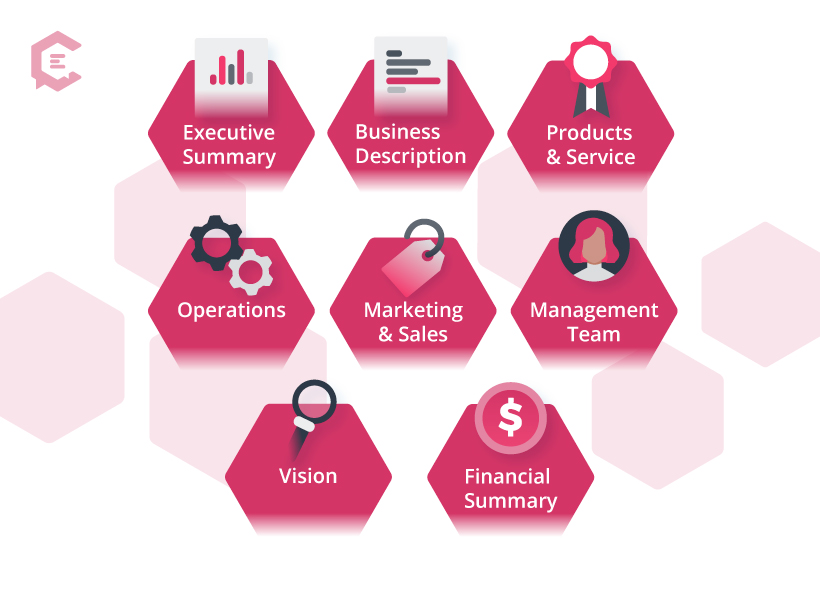The words “business plan” probably evoke thoughts of a large company and a multi-phased, time-sucking process. In some cases, those thoughts are not too far off of the mark. Planning for a major company, with many subsidiaries and who does business all over the world, justifies this sort of elongated business planning process.
But us “little guys” also need a plan. No matter how much you enjoy creating content, freelance writing is a business. You will need to generate a sufficient income from writing in order to keep doing it. A business plan can help you focus on the business aspects of becoming a financially successful freelance writer. A business plan can be done literally on the back of a napkin, via spreadsheets and Word docs or via one of the many programs or online tools available.
Your business plan doesn’t need to be complex, but it is important to do one and to update it periodically.
Key elements of a business plan:

This will vary a bit, but these headings should give you some insights:
1. Executive summary
This section is often geared for external readers, especially if the business plan is being used to raise funding for a business, but it is also a good opportunity for you to articulate what it is that you do, who are your target clients, etc. Many experts suggest that this section be written last, and we agree. This should be an outgrowth of the rest of your business plan.
2. Business description
Here’s where you will describe what you do and the services that you offer. This is a place to discuss the overall freelance writing market, your goals for your business and how you might define success. Who are your target clients? Do you have a niche? What are the opportunities and challenges you face specific to your business and in your overall niche?
3. Products and services
What specific services do you offer? Blog posts, long-form articles, ghost writing? Do your offer other services related to writing, such as graphics, site design, editorial or social media? What makes you and your services unique? Why should organizations, brands, publications, websites and others consider you?
4. Sales and marketing
Some freelance writers are fortunate enough to be able to turn away work, but most of us need or want to generate new business. We may want to attract bigger and more lucrative clients. Client turnover is always an issue for freelancers, as some clients may not need your services at some point. Do you have a writer’s website for your business? Do you have an updated portfolio? Are you a solid networker? Do you pitch sites and publications for whom you’d like to write? What strategies and tactics will you use to attract new business?
5. Operations
This section is about administration. Where do you work? Are you the only one in the business? What type of business are you in terms of an entity? Sole proprietor, S-Corp., and LLC are common business forms. Do you have any contractual or legal relationships governing your work?
6. Management team
Again, this might be you alone. Do you have any advisors, such as an outside accountant? Do you use contractors for services, such as a virtual assistant or an outside editor? Do you collaborate with others in delivering your services?
7. Vision for your business or growth plan
This section can have many names, but the point is to outline where you want to be in five years and how will you get there. This is a good place to dream big, but to be realistic as well. What is your vision for your freelance writing business? Who are the ideal clients you want to work with? What topic do you most enjoy writing about?
8. Financial summary
This is the boring numbers stuff. Where are you now? What does your most recent P&L (profit and loss statement) look like? Where do you think you are headed financially? This is a good spot to discuss any bookkeeping and accounting issues as well.
This framework might seem a bit much for you, especially if you are a one-person business as many freelance writers are. Feel free to adapt and consolidate this framework as needed to fit you needs. While you should have some sort of structure for your business plan, the exact format is very flexible and should fit your business and the key issues as you see them.
Bounce it off someone.
Do you have someone who is a trusted business colleague, whether in freelance writing or not? Even your spouse or significant other might be a good candidate to look your plan over and ask questions/offer feedback. Think of this part of the process as working with an editor on a writing assignment that you’ve turned into your client. The editor has another set of eyes and another perspective. Their feedback can go a long way towards improving the article that you submitted. A business plan works the same way.
Why bother?
Maybe this process and a formal business plan seems like a lot of busy work to you. This is time you could be spending writing and making a bit more money.
The real value in doing a business plan, no matter how informal it may be, is that it forces you to think about your freelance writing business as a business. Freelance writers come from a variety of backgrounds, many may be new to the business aspect of what they are doing.
It’s like family road trips that many of us took as kids. Mom and Dad would pile everyone into the car along with all the luggage. An essential piece of “gear” was the map, because it’s hard to get to your destination if you don’t have a roadmap. This is a good way to think of your business plan: It’s a roadmap to where you want your business to be. This doesn’t mean that the plan can’t and won’t change over time, but getting started is the first step to mapping up your business future.
Also, a business plan is a fluid document and isn’t set in stone. You should review it periodically and update it as appropriate. Let’s say you find yourself taking on more clients in a certain niche, or begin to focus on some additional types of writing services. Running this through the framework of your business plan and/or updating the plan is a good way to help you focus on these new services and what the implications are for your business.
Disclaimer: This article is meant as a guide for informational purposes only. It does not constitute a solicitation or provision of legal or financial advice, nor does it establish a client-attorney relationship. Please consult a professional in making any decisions for your business.



